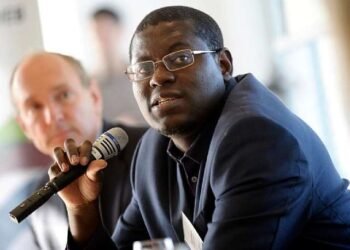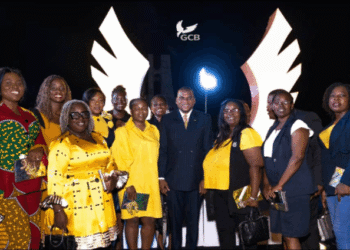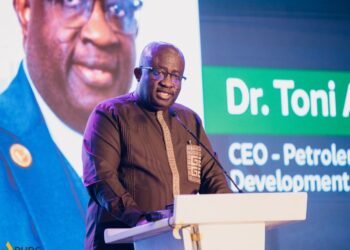President John Dramani Mahama has reaffirmed his administration’s commitment to ending illegal mining, also known as galamsey, emphasizing that the task can only succeed with the collective effort of every Ghanaian.
Writing after a high-level engagement with Civil Society Organisations (CSOs), the President underscored the urgent need for national unity, accountability, and vigilance in safeguarding Ghana’s environment from the devastating effects of unregulated mining.
“I’m determined to end galamsey, but I need the support of every Ghanaian. To the CSOs and activists, keep the pressure on. Hold us accountable. Your advocacy is welcome. We won’t hand poisoned rivers and destroyed forests to our children.”
President John Dramani Mahama
His remarks highlighted both a firm personal resolve and a call for shared responsibility. The President noted that while his government is advancing a series of legal, institutional, and enforcement reforms to tackle the menace, success would require the active participation of civil society, activists, traditional leaders, and citizens across the country.
“In my meeting with Civil Society Organisations, I reaffirmed my administration’s commitment to ending illegal mining. I made it clear that I am determined to win the fight, but I cannot do it alone. We need every Ghanaian, the CSOs, activists, and traditional leaders to join us in this battle.”
President John Dramani Mahama
President Mahama welcomed scrutiny and criticism from civil society, arguing that accountability and advocacy were necessary if the fight against galamsey was to yield lasting results.
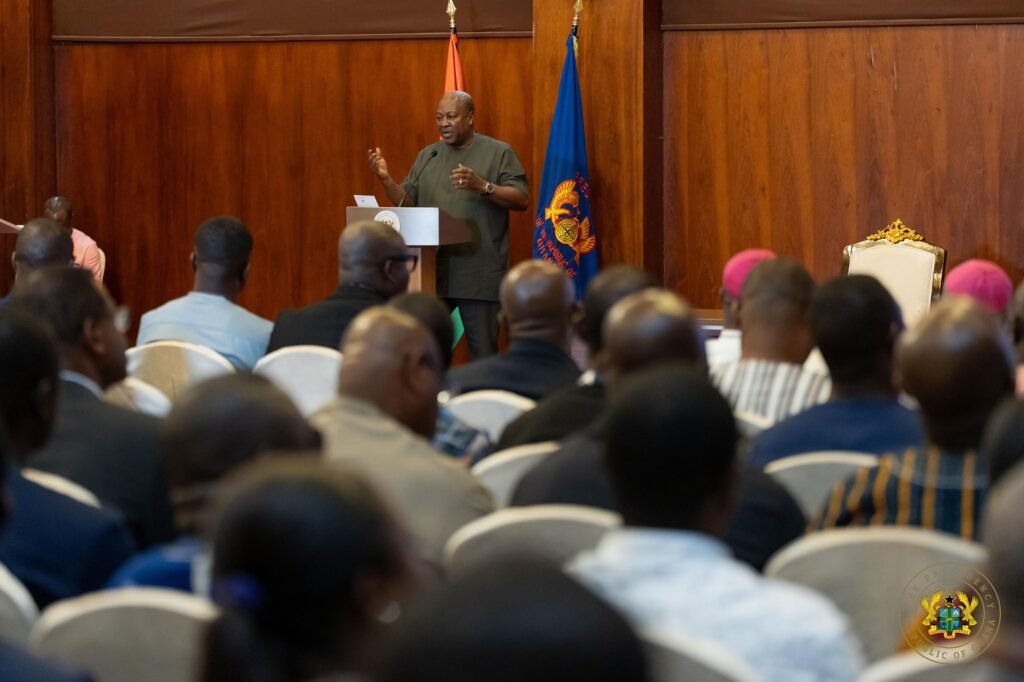
“Put pressure on me, on my Ministers, and on every official responsible for protecting our environment. Your advocacy, criticism, and vigilance are welcome if we are to succeed in this fight”.
President John Dramani Mahama
Galamsey Fight, a Generation Duty
The President framed the battle against galamsey as more than an environmental issue, describing it as a generational duty to preserve Ghana’s natural heritage.
“Our forefathers inherited a beautiful country blessed with lush forests and pristine rivers. We have a sacred duty to preserve this heritage for our children and grandchildren. We cannot – and will not – hand them poisoned water bodies and destroyed forests”.
President John Dramani Mahama
The engagement with CSOs also outlined a number of specific commitments by key state institutions as part of the government’s broader anti-galamsey strategy.
The Attorney General’s Department has taken steps to strengthen Ghana’s mining legal framework through reforms to the Minerals and Mining Act (Act 703, 2006). A new legislative instrument, L.I. 2501, will be introduced to repeal the controversial L.I. 2464, which has faced criticism for providing loopholes exploited by illegal operators.
The department also plans to establish district-level tribunals with exclusive jurisdiction to prosecute illegal mining cases, ensuring that offenders face swift and decisive justice. According to the Attorney General, the tribunals will operate with strict timelines to avoid unnecessary delays.
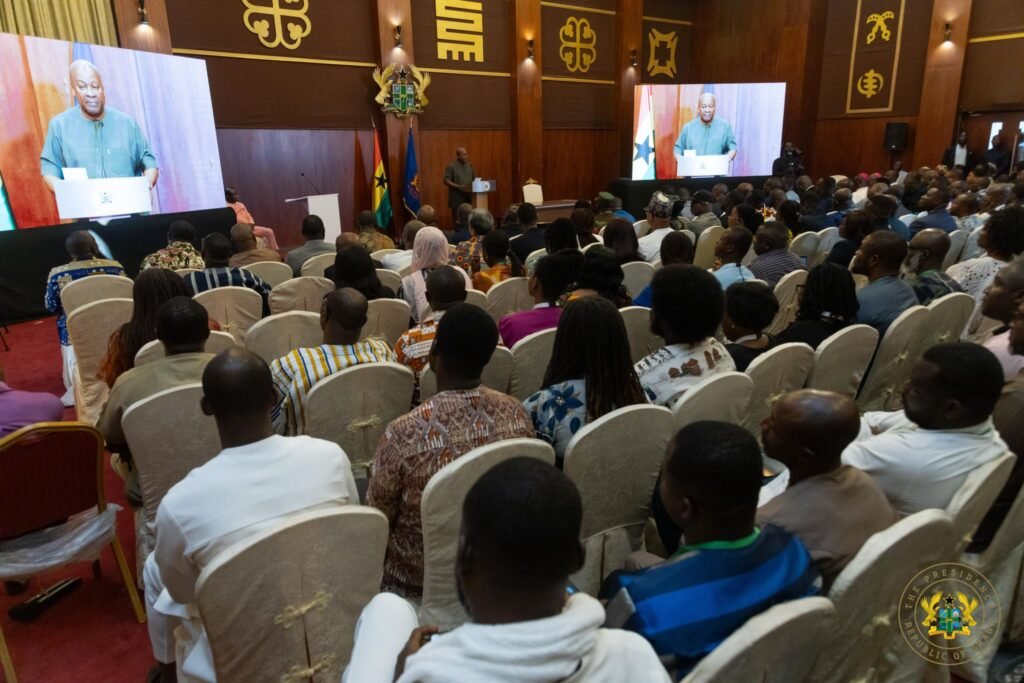
The intent is to ensure that every mining-related case is concluded within a maximum of six months, strengthening public confidence in the justice system’s ability to protect the environment.
On the enforcement front, the National Anti-Illegal Mining Operations Secretariat (NAIMOS) also pledged to intensify law enforcement, focusing on stronger investigations, coordinated operations, and robust prosecutions.
The agency assured that it will deploy intelligence-driven strategies to ensure not only the arrest but also the successful prosecution of offenders.
The Ministry of Lands and Natural Resources, in collaboration with the Environmental Protection Agency (EPA) and the Forestry Commission, committed to a large-scale reclamation program.
This initiative will focus on restoring degraded forests and cleaning heavily polluted rivers, particularly those destroyed by illegal mining. Officials stressed that reclamation efforts are as crucial as enforcement, given the severe ecological damage already caused by galamsey operations.
Beyond enforcement and reclamation, President Mahama emphasized the importance of sustainability. He pledged that his government would create alternative jobs and provide livelihood opportunities to those affected by the clampdown on illegal mining.
Alongside these economic measures, a comprehensive public education and awareness campaign will be rolled out to foster greater environmental consciousness among citizens.
Civil society representatives at the meeting welcomed the commitments but urged the government to move quickly from policy announcements to visible results. For them, the restoration of destroyed lands and water bodies, combined with credible enforcement of the law, will be the true measure of success.
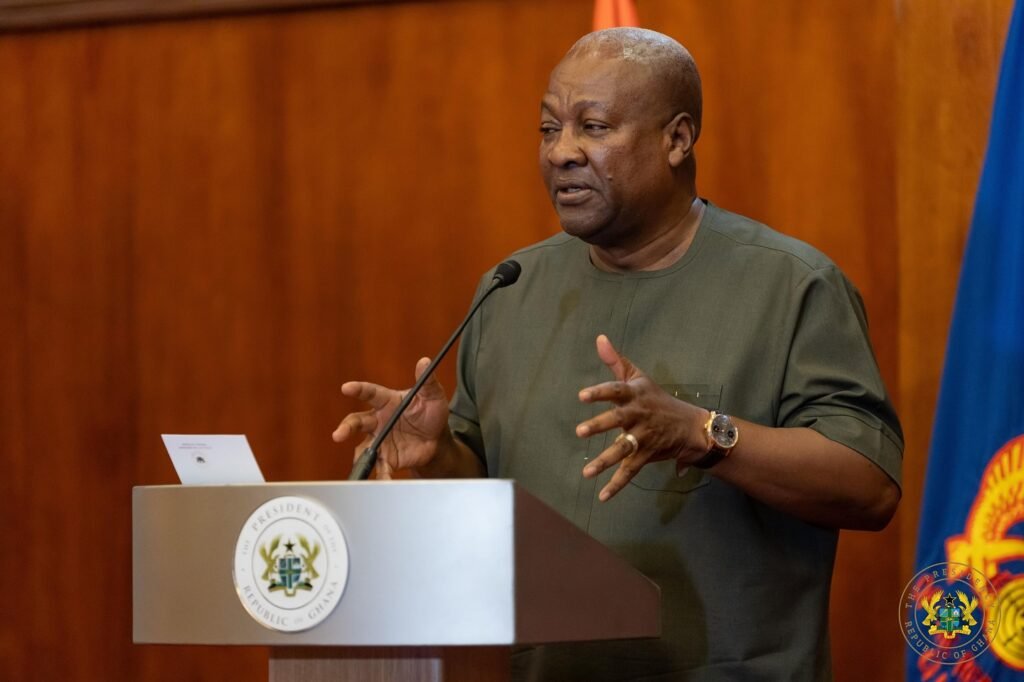
President Mahama, however, maintained that with unity of purpose, the fight against galamsey could be won. He described the battle as one that transcends politics, stressing that it is a national mission that must be carried out with determination, fairness, and transparency.
The renewed pledge by the President and the accompanying commitments from key state actors signal a more coordinated, multi-dimensional approach to the galamsey crisis—an approach that blends legal reform, enforcement, reclamation, sustainable livelihoods, and civic accountability.
For many, the test will lie in how effectively these promises are translated into action on the ground, where the scars of illegal mining remain most visible.
READ ALSO: Absa Bank Champions Ghana’s 24-Hour Economy with GH¢1.8bn SME Boost




